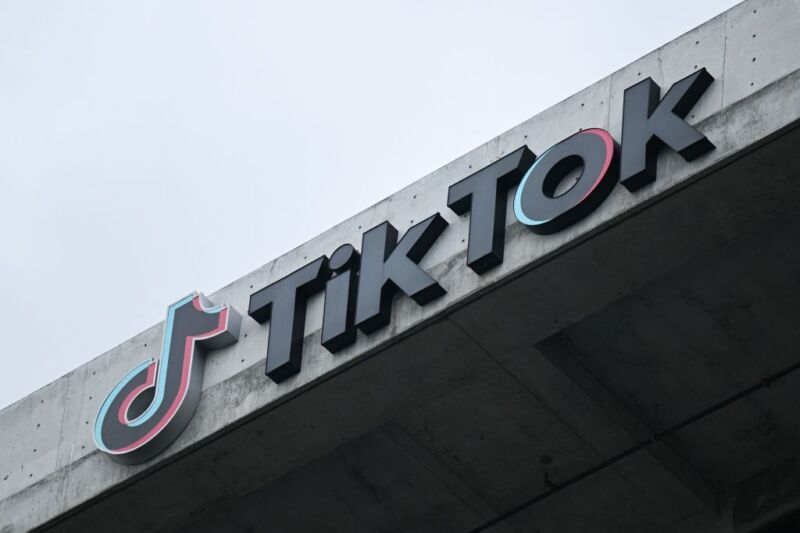
Days after TikTok users filed a lawsuit to block Montana’s TikTok ban, TikTok has kept its promise to fight the ban and filed its own lawsuit in a U.S. district court in Montana.
“We are challenging Montana’s unconstitutional TikTok ban to protect our company and the hundreds of thousands of TikTok users in Montana,” Brooke Oberwetter, TikTok’s spokesperson, told Ars. “We believe our legal challenge will prevail based on an extraordinarily strong set of precedents and facts.”
TikTok’s complaint touches on the same points as TikTok users’ lawsuit.
TikTok argued that Montana’s ban is lifted by federal law because only the federal government can regulate national security and foreign affairs. The ban would also violate the U.S. Constitution’s Commerce Clause, in part by interfering with TikTok’s availability to users in other states and risking “interfering with the flow of interstate commerce.” And, as many experts have pointed out, the ban allegedly violates the First Amendment by “unconstitutionally closing the forum for speech to all speakers on the app and singles those speakers out for unfavorable treatment with the content-based rationale that videos on TikTok are harmful to minors.”
However, TikTok’s lawsuit also builds on the users’ lawsuit by adding another argument. TikTok argued that the TikTok ban in Montana is an “unconstitutional declaration”. According to the complaint, this means that:
Rather than regulating social media companies more broadly, the ban bans TikTok, and only TikTok, from the state for purely punitive reasons, as evidenced by the state’s decision to single out plaintiff for harsh penalties based on speculative concerns about TikTok’s data security and content moderation practices.
Named as a defendant in the lawsuit is Austin Knudsen, the attorney general of Montana, who is charged with enforcing the ban.
Knudsen spokesperson Emily Flower told Ars that “we anticipated legal challenges and are fully prepared to defend the law that helps protect the privacy and safety of Montanans.”
The TikTok users’ complaint also noted that Knudsen has said he expects the US Supreme Court will likely have to weigh in.
Ars could not immediately reach the TikTok users’ attorney, Ambika Kumar, to comment on TikTok’s lawsuit, but Kumar previously told Ars that “Montana’s blanket ban prevents our customers, and all Montana residents, from to engage in protected speech. We are determined to see this misleading and invalid law permanently enforced.”
Now, TikTok is also asking for an injunction that would void Montana’s ban and “provisionally and permanently mandate” Knudsen and the state to enforce the TikTok ban.
Unless these lawsuits or other challenges succeed, Montana’s TikTok ban will take effect January 1, 2024. to download TikTok,” TikTok’s complaint read.
Last December, The New York Times reported that the U.S. Justice Department and FBI launched an investigation into TikTok after it was revealed that ByteDance employees may have had access to U.S. user data — which journalists and their acquaintances were monitoring.
In a press release, Knudsen cited this incident among other national security concerns that led him to support Montana’s ban. Flower pointed Ars to reports from Human Rights Watch and Forbes, which claimed that ByteDance may have no choice but to share data with the Chinese Communist Party, and that ByteDance was already planning to track specific US citizens.
“The Chinese Communist Party is using TikTok as a tool to spy on Americans by collecting personal information, keystrokes, and even the locations of its users — and by extension, people without TikTok connected to users can share information about themselves without spending the night know,” Flower told Ars.
TikTok has continued to claim that national security concerns from Congress and Montana about the Chinese Community Party potentially seizing US data from China-owned ByteDance and spying on Americans are “baseless”.
In TikTok’s complaint, the social media company also argued that Montana has overlooked more targeted measures to address concerns about the state’s national security, as well as concerns about minors accessing inappropriate content on the app.
Now, unless a court steps in, TikTok warned that because the ban is technically difficult to enforce, app stores could restrict access to TikTok across the US. And Montana “should block any user from accessing TikTok the moment they cross state lines, and for those users who want to maintain access to TikTok, they should adjust their plans accordingly.”
“Within less than eight months, no resident, visitor, or employee traveling through Montana will be able to download TikTok on his or her phone or mobile device, post videos to TikTok for others to see, or post content on the website. to look at.” platform,” said TikTok’s complaint.

